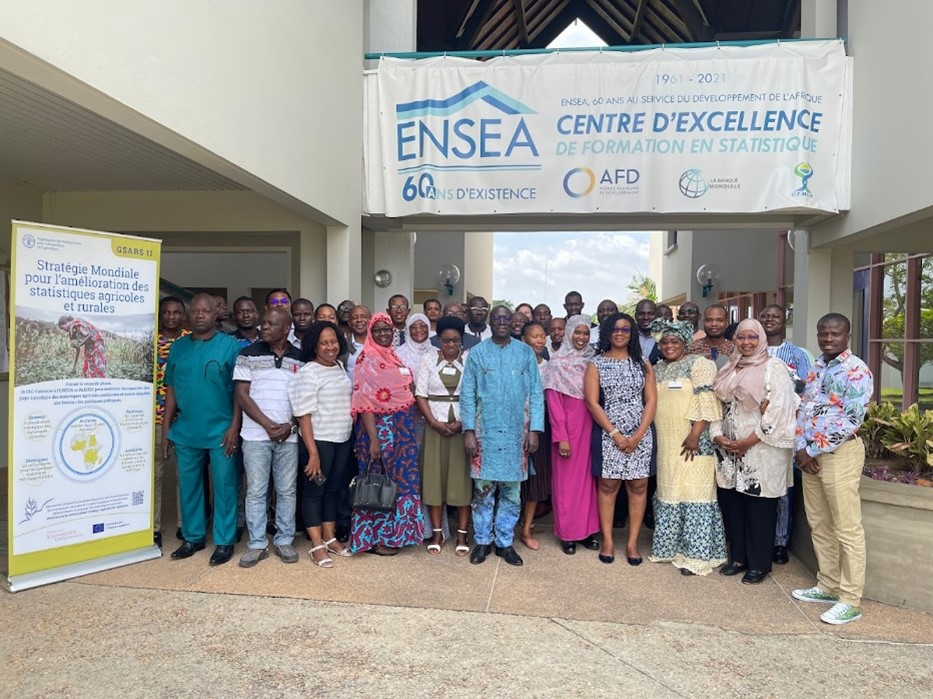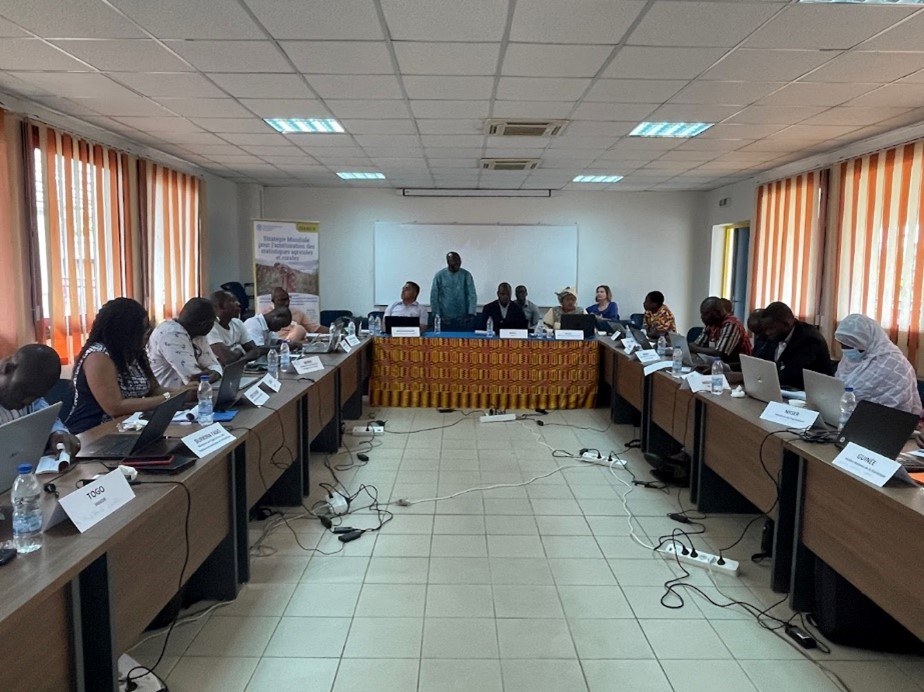Regional Training on Agricultural Statistics in Cote d'ivoire, Abidjan
November 8-18, 2022
 Building on the recognized successes achieved during the first phase, the 2nd round of Global Strategy for Improving Agricultural and Rural Statistics (GSARS) in Africa (2021-2023) has begun in early 2021 for an initial duration of three years, co-funded by the Bill and Melinda Gates Foundation and the European Union, with the aim to reinforcing technical capacities in national agricultural statistical systems for accountability reporting and policymaking.
Building on the recognized successes achieved during the first phase, the 2nd round of Global Strategy for Improving Agricultural and Rural Statistics (GSARS) in Africa (2021-2023) has begun in early 2021 for an initial duration of three years, co-funded by the Bill and Melinda Gates Foundation and the European Union, with the aim to reinforcing technical capacities in national agricultural statistical systems for accountability reporting and policymaking.
As part of the MOU agreement between the Food and Agriculture Organization (FAO) and the Economic Commission for Africa (ECA), the African Centre for Statistics (ACS) is in charge of organizing the scholarships within the existing network of statistical schools in Africa and administer courses on basic agricultural statistics at the regional level.
To provide basic theoretical knowledge and skills in agricultural statistics to data producers, statisticians, economists and agronomists with basic knowledge in agricultural and rural statistics, ACS, in collaboration with FAO and ENSEA, delivered a two-week long intensive training for 31 (32.3% females) participants from National Statistics Offices and Ministry of Agricultures composed from 18 identified African countries. The training kicked off on November 8, 2022, at ENESA compound of Abidjan, Cote d'Ivoire.
The short training was the first step in the capacity development programme to prepare the countries to implement an Integrated Agricultural Survey Programme, which requires certain statistical knowledge and practical experience with basic agricultural statistics. In line with the 'commitments' made by the 50x2030 Initiative, this training provides an overview of the agricultural statistics data cycle, the minimum set of national indicators, incl. gender indicators and sex-disaggregated data, that can be mainstreamed in the agricultural survey programme.
The training course covered four modules:
- Module 1: An overview of the general framework of agricultural statistics
- Module 2: Agricultural statistics, data producers and data sources
- Module 3: Implementing agricultural sample survey
- Module 4: Analytical frameworks, derived statistics and indicators
During the training, countries shared experiences related to conducting agricultural surveys and related technical issues. Further reflections and commitments made by training participants to cascade down the knowledge they received during the workshop. Some participants indicated that when they return to their country, they will organize small workshops and provide similar training to junior staff. Some other participants will incorporate the knowledge gained in their agricultural surveys and improve their agricultural statistics manuals/guidelines accordingly. To this end, the anticipated capacity building of the experts is attained.